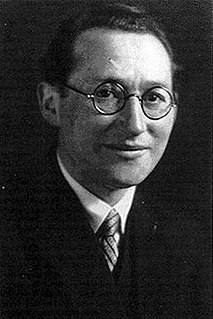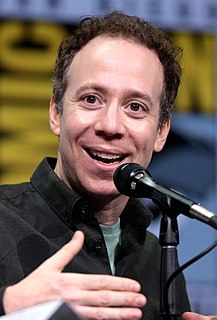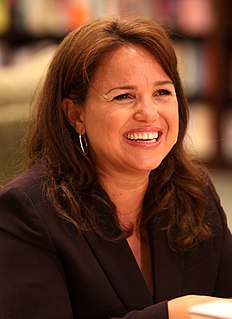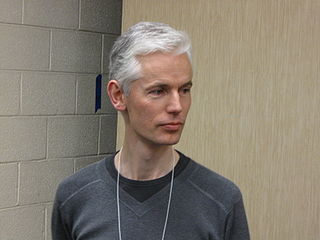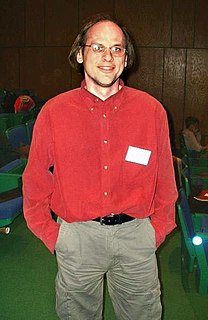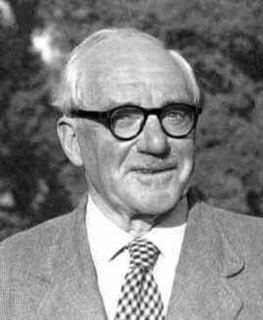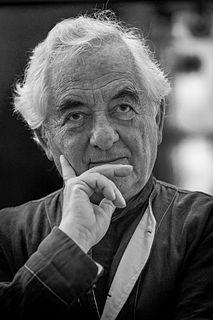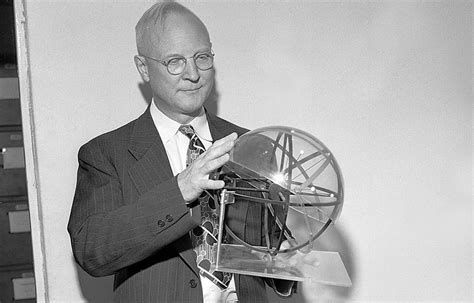Top 1200 Scientific Theory Quotes & Sayings - Page 13
Explore popular Scientific Theory quotes.
Last updated on April 22, 2025.
In the field one has to face a chaos of facts, some of which are so small that they seem insignificant; others loom so large that they are hard to encompass with one synthetic glance. But in this crude form they are not scientific facts at all; they are absolutely elusive, and can be fixed only by interpretation, by seeing them sub specie aeternitatis, by grasping what is essential in them and fixing this. Only laws and generalizations are scientific facts, and field work consists only and exclusively in the interpretation of the chaotic social reality, in subordinating it to general rules.
Students using astrophysical textbooks remain essentially ignorant of even the existence of plasma concepts, despite the fact that some of them have been known for half a century. The conclusion is that astrophysics is too important to be left in the hands of astrophysicists who have gotten their main knowledge from these textbooks. Earthbound and space telescope data must be treated by scientists who are familiar with laboratory and magnetospheric physics and circuit theory, and of course with modern plasma theory.
There is no "scientific worldview" just as there is no uniform enterprise "science" - except in the minds of metaphysicians, school masters, and scientists blinded by the achievements of their own particular niche... There is no objective principle that could direct us away from the supermarket "religion" or the supermarket "art" toward the more modern, and much more expensive supermarket "science." Besides, the search for such guidance would be in conflict with the idea of individual responsibility which allegedly is an important ingredient of a "rational" or scientific age.
For the artist, the goal of the painting or musical composition is not to convey literal truth, but an aspect of a universal truth that if successful, will continue to move and to touch people even as contexts, societies and cultures change. For the scientist, the goal of a theory is to convey "truth for now"--to replace an old truth, while accepting that someday this theory, too, will be replaced by a new "truth," because that is the way science advances.
String theory is the most developed theory with the capacity to unite general relativity and quantum mechanics in a consistent manner. I do believe the universe is consistent, and therefore I do believe that general relativity and quantum mechanics should be put together in a manner that makes sense.
One of the things that sets the Bible apart from all other ancient religious writings is its scientific accuracy. Without exception, every other ancient religious writing contains certain scientific errors. For example, Muhammad taught in the Qur'an that the sun descends down into a muddy spring. The Hindu Vedas state that the Earth is flat and triangular, that earthquakes are caused by elephants shaking themselves under it. You'll never read absurd statements like those in the Bible.
Evolutionary theory, properly understood, does not conflict with the idea that God occasionally intervenes in nature - for example, by once or twice causing a beneficial mutation to occur. Biologists have not detected any such interventions despite the data and theory they have assembled about mutation. However, I think it is a mistake to expect biological experiments to be able to detect such one-off acts of divine intervention, especially if those acts occurred in the distant past. Science isn't in that line of work.
Statistics is, or should be, about scientific investigation and how to do it better, but many statisticians believe it is a branch of mathematics. Now I agree that the physicist, the chemist, the engineer, and the statistician can never know too much mathematics, but their objectives should be better physics, better chemistry, better engineering, and in the case of statistics, better scientific investigation. Whether in any given study this implies more or less mathematics is incidental.
Most people like to believe something is or is not true. Great scientists tolerate ambiguity very well. They believe the theory enough to go ahead; they doubt it enough to notice the errors and faults so they can step forward and create the new replacement theory. If you believe too much you'll never notice the flaws; if you doubt too much you won't get started. It requires a lovely balance.
The history of acceptance of new theories frequently shows the following steps: At first the new idea is treated as pure nonsense, not worth looking at. Then comes a time when a multitude of contradictory objections are raised, such as: the new theory is too fancy, or merely a new terminology; it is not fruitful, or simply wrong. Finally a state is reached when everyone seems to claim that he had always followed this theory. This usually marks the last state before general acceptance.
Modern thinking is that time did not start with the big bang, and that there was a multiverse even before the big bang. In the inflation theory, and in string theory, there were universes before our big bang, and that big bangs are happening all the time. Universes are formed when bubbles collide or fission into smaller bubles.
So my antagonist said, "Is it impossible that there are flying saucers? Can you prove that it's impossible?" "No," I said, "I can't prove it's impossible. It's just very unlikely." At that he said, "You are very unscientific. If you can't prove it impossible then how can you say that it's unlikely?" But that is the way that is scientific. It is scientific only to say what is more likely and what less likely, and not to be proving all the time the possible and impossible.
Despite long-standing claims by elites that Blacks, women, Latinos, and other similarly derogated groups in the United States remain incapable of producing the type of interpretive, analytical thought that is labeled theory in the West, powerful knowledges of resistance that toppled former social structures of social inequality repudiate this view. Members of these groups do in fact theorize, and our critical social theory has been central to our political empowerment and search for justice.
There is not enough evidence, consistent evidence to make it as fact, and I say that because for theory to become a fact, it needs to consistently have the same results after it goes through a series of tests. The tests that they put- that they use to support evolution do not have consistent results. Now too many people are blindly accepting evolution as fact. But when you get down to the hard evidence, it's merely a theory.
As value investors, our business is to buy bargains that financial market theory says do not exist. We've delivered great returns to our clients for a quarter century-a dollar invested at inception in our largest fund is now worth over 94 dollars, a 20% net compound return. We have achieved this not by incurring high risk as financial theory would suggest, but by deliberately avoiding or hedging the risks that we identified.
At the other end of the spectrum is, for example, graph theory, where the basic object, a graph, can be immediately comprehended. One will not get anywhere in graph theory by sitting in an armchair and trying to understand graphs better. Neither is it particularly necessary to read much of the literature before tackling a problem: it is of course helpful to be aware of some of the most important techniques, but the interesting problems tend to be open precisely because the established techniques cannot easily be applied.
When scientists need to explain difficult points of theory, illustration by hypothetical example - rather than by total abstraction - works well (perhaps indispensably) as a rhetorical device. Such cases do not function as speculations in the pejorative sense - as silly stories that provide insight into complex mechanisms - but rather as idealized illustrations to exemplify a difficult point of theory. (Other fields, like philosophy and the law, use such conjectural cases as a standard device.
The chicken noticed that the farmer came every day to feed it. It predicted that the farmer would continue to bring food every day. Inductivists think that the chicken had "extrapolated" its observations into a theory, and that each feeding time added justification to that theory. Then one day the farmer came and wrung the chicken's neck. This inductively justifies the conclusion that induction cannot justify any conclusion.
The main thing to understand about the current state of physics is that we have - are in some sense, a kind of victim of our own success. We have an incredibly successful theory called the Standard Model. And it really explains everything that we can observe about and in terms of a very small number of elementary particles and some basic forces between them. And it's a quite beautiful theory and it really is just absurdly successful.
My house fly theory is related to my theory about why time seems to go faster as you get older." "Why's that?" the girl asked. "It's proportional," Leonard explained. "When you're five, you've only been alive a couple thousand days. But by the time you're fifty, you've lived around twenty thousand days. So a day when you're five seems longer because it's a greater percentage of the whole.
A Chinese paleontologist lectures around the world saying that recent fossil finds in his country are inconsistent with the Darwinian theory of evolution. His reason: The major animal groups appear abruptly in the rocks over a relatively short time, rather than evolving gradually from a common ancestor as Darwin's theory predicts. When this conclusion upsets American scientists, he wryly comments: "In China we can criticize Darwin but not the government. In America you can criticize the government but not Darwin."
How can we find spiritual meaning in a scientific worldview? Spirituality is a way of being in the world, a sense of one’s place in the cosmos, a relationship to that which extends beyond oneself. . . . Does scientific explanation of the world diminish its spiritual beauty? I think not. Science and spirituality are complementary, not conflicting; additive, not detractive. Anything that generates a sense of awe may be a source of spirituality. Science does this in spades. (158-159)
[Theory is] an explanation that has been confirmed to such a degree, by observation and experiment, that knowledgeable experts accept it as fact. That's what scientists mean when they talk about a theory: not a dreamy and unreliable speculation, but an explanatory statement that fits the evidence. They embrace such an explanation confidently but provisionally - taking it as their best available view of reality, at least unil some severely conflicting data or some better explanation might come along.
On scientific grounds this big bang assumption is much less the palatable of the two. For it is an irrational process that cannot be described in scientific terms. . . . On philosophical grounds too I cannot see any good reason for preferring the big bang idea. Indeed it seems to me in the philosophical sense to be a distinctly unsatisfactory notion, since it puts the basic assumption out of sight where it can never be challenged by a direct appeal to observation.
Research is industrial prospecting. The oil prospectors use every scientific means to find new paying wells. Oil is found by each one of a number of methods. My own group of men are prospecting in a different field, using every possible scientific means. We believe there are still things left to be discovered. We have only stumbled upon a few barrels of physical laws from the great pool of knowledge. Some day we are going to hit a gusher.
To avert the danger [posed by theory] to life, Nietzsche could choose one of two ways: he could insist on the strictly esoteric character of the theoretical analysis of life - that is, restore the Platonic notion of the noble delusion - or else he could deny the possibility of theory proper and so conceive of thought as essentially subservient to, or dependent on, life or fate... If not Nietzsche himself, at any rate his successors [Heidegger] adopted the second alternative.
... one of the main functions of an analogy or model is to suggest extensions of the theory by considering extensions of the analogy, since more is known about the analogy than is known about the subject matter of the theory itself ... A collection of observable concepts in a purely formal hypothesis suggesting no analogy with anything would consequently not suggest either any directions for its own development.
In the popular mind, if Hoyle is remembered it is as the prime mover of the discredited Steady State theory of the universe. "Everybody knows" that the rival Big Bang theory won the battle of the cosmologies, but few (not even astronomers) appreciate that the mathematical formalism of the now-favoured version of Big Bang, called inflation, is identical to Hoyle's version of the Steady State model.
We come finally, however, to the relation of the ideal theory to real world, or "real" probability. If he is consistent a man of the mathematical school washes his hands of applications. To someone who wants them he would say that the ideal system runs parallel to the usual theory: "If this is what you want, try it: it is not my business to justify application of the system; that can only be done by philosophizing; I am a mathematician". In practice he is apt to say: "try this; if it works that will justify it".
I had a great deal of independence from the president and the White House during the entirety of my five years. And I'm not sure exactly what that is, but our friend, Walter Dellinger, has a theory about it, and I think he's probably right. And the theory starts with the fact that I worked in the White House for a year and a half before coming over to the position of SG. And because of that, when I was nominated, there was some chatter out there that, "Oh. They're putting a political hack in. This has never happened before."
The shell game that we play ... is technically called 'renormalization'. But no matter how clever the word, it is still what I would call a dippy process! Having to resort to such hocus-pocus has prevented us from proving that the theory of quantum electrodynamics is mathematically self-consistent. It's surprising that the theory still hasn't been proved self-consistent one way or the other by now; I suspect that renormalization is not mathematically legitimate.
The ends of scientific classification are best answered, when the objects are formed into groups respecting which a greater number of general propositions can be made, and those propositions more important, than could be made respecting any other groups into which the same things could be distributed. ... A classification thus formed is properly scientific or philosophical, and is commonly called a Natural, in contradistinction to a Technical or Artificial, classification or arrangement.
Renormalization is just a stop-gap procedure. There must be some fundamental change in our ideas, probably a change just as fundamental as the passage from Bohr's orbit theory to quantum mechanics. When you get a number turning out to be infinite which ought to be finite, you should admit that there is something wrong with your equations, and not hope that you can get a good theory just by doctoring up that number.
The physiologist is not a man of the world, he is a scientist, a man caught and absorbed by a scientific idea that he pursues; he no longer hears the cries of the animals, no longer sees the flowing blood, he sees only his idea: organisms that hide from him problems that he wants to discover. He doesn't feel that he is in a horrible carnage; under the influence of a scientific idea, he pursues with delight a nervous filament inside stinking and livid flesh that for any other person would be an object of disgust and horror.
The theory of medicine, therefore, presents what is useful in thought, but does not indicate how it is to be applied in practice-the mode of operation of these principles. The theory, when mastered, gives us a certain kind of knowledge. Thus we say, for example, there are three forms of fevers and nine constitutions. The practice of medicine is not the work which the physician carries out, but is that branch of medical knowledge which, when acquired, enables one to form an opinion upon which to base the proper plan of treatment.
Our constitutions purport to be established by 'the people,' and, in theory, 'all the people' consent to such government as the constitutions authorize. But this consent of 'the people' exists only in theory. It has no existence in fact. Government is in reality established by the few; and these few assume the consent of all the rest, without any such consent being actually given.
Most liberal-minded folk would like to think that since they are not hostile to people of a different race, racism is a disease of the uneducated, unenlightened and socially backward - football hooligans, British National Party supporters, policemen. You could call this the Bad Guy Theory. But the Bad Guy Theory does not explain why Indian-heritage children do nearly twice as well as Pakistani-heritage children at GCSE.
I get paid to do what I love. If you understand physics, the foundation of the atomic theory and relativity, you understand how the future is going to unfold. You understand what things are not possible. You understand why things work. I get paid to do what I love the most, and that is to work on the Unified Field Theory and to see the future.
I knew that what I did visually could not be completely understood. I knew that certain aspects of the work need a long time to develop. You get the visual idea in two seconds, but this idea can be developed like like a theory. You can see later on if the theory was correct, followed, or completely abandoned. That's why the writing can advance what is done. This is more or less how I started to write: to be sure that people will not totally misunderstand what my goal was.
What struck me most in England was the perception that only those works which have a practical tendency awake attention and command respect, while the purely scientific, which possess far greater merit are almost unknown. And yet the latter are the proper source from which the others flow. Practice alone can never lead to the discovery of a truth or a principle. In Germany it is quite the contrary. Here in the eyes of scientific men no value, or at least but a trifling one, is placed upon the practical results. The enrichment of science is alone considered worthy attention.
Day after day I read Freud, thinking myself to be very enlightened and scientific when, as a matter of fact, I was about as scientific as an old woman secretly poring over books about occultism, trying to tell her own fortune, and learning how to dope out the future form the lines in the palm of her hand. I don't know if I ever got very close to needing a padded cell: but if I ever had gone crazy, I think psychoanalysis would have been the one thing chiefly responsible for it.
I think we've got to look at corporate law. Back in the day when I studied it, there were different constituencies that were to be served, and I think there was a real wrong turn about 20 to 25 years ago when the theory began to be promoted that your highest duty - in fact, some would argue, your only duty - is to maximize shareholder return. I just don't buy it. And it wasn't the original underpinnings of the legal theory of corporate law.
Once one realizes that magick works, and that it works based on scientific factors, the next step is to hone one's skill to reach repetitive success. What makes magick so interesting is that because we are individuals, the combination that unlocks the door to success will vary from person to person, yet the main thrust of the work operates on a specific set of scientific formulas that our scientists are only now beginning to fathom. The mystery, then, lies within each of us.
Opponents say natural selection is not a theory supported by observation or experiment; that it is not based on fact; and that it cannot be proved. Well, no, you cannot prove the theory to people who won't believe in it any more than you can prove that the Battle of Hastings took place in 1066. However, we know the battle happened then, just as we know the course of evolution on earth unambiguously shows that Darwin was right.
With the egoic consciousness having become so dysfunctional, and now having at our disposal all these enormous technologies and scientific advances, if nothing changes the ego will use those things - as it already has been doing - and will amplify the technology that we now have. The scientific advances, to a large extent, will be used in the service of the ego, and they will become more and more destructive.
Psychology should be the chief basic science upon which the practices of education depend. It should have supplied education with the information it needs concerning the processes of understanding, learning, and thinking, among other things. One of the difficulties has been that such theory as has been developed has been based primarily upon studies of behavior of rats and pigeons. As someone has said, some of the theory thus developed has been an insult even to the rat.
In point of fact, no conclusive disproof of a theory can ever be produced; for it is always possible to say that the experimental results are not reliable or that the discrepancies which are asserted to exist between the experimental results and the theory are only apparent and that they will disappear with the advance of our understanding. If you insist on strict proof (or strict disproof) in the empirical sciences, you will never benefit from experience, and never learn from it how wrong you are.
It is an odd fact of evolution that we are the only species on Earth capable of creating science and philosophy. There easily could have been another species with some scientific talent, say that of the average human ten-year-old, but not as much as adult humans have; or one that is better than us at physics but worse at biology; or one that is better than us at everything. If there were such creatures all around us, I think we would be more willing to concede that human scientific intelligence might be limited in certain respects.
The confidence in the unlimited power of science is only too often based on a false belief that the scientific method consists in the application of a ready-made technique, or in imitating the form rather than the substance of scientific procedure, as if one needed only to follow some cooking recipes to solve all social problems. It sometimes almost seems as if the techniques of science were more easily learnt than the thinking that shows us what the problems are and how to approach them.
The scarcest resource these days is reason. What's certainly striking about American culture today is the great hostility toward science and the decline of respect for rational scientific thinking. People seem to think that we are ruled by the scientific method and that we overvalue reason. If there was ever a period when we overvalued reason, I think that it was probably extremely brief. What I see now is a great deal of superstition, as much superstition as there has ever been. There are probably more people who believe in guardian angels than who understand the law of gravity.
What would it mean if there were a theory that explained everything? And just what does "everything" actually mean, anyway? Would this new theory in physics explain, say the meaning of human poetry? Or how economics work? Or the stages of psychosexual development? Can this new physics explain the currents of ecosystems, or the dynamics of history, or why human wars are so terribly common?
Which is to say that culture is not a reflex of political economy, but
that society is now a reflex of key shifts in music theory and practice....
[Sampladelia is] the sound made by those early-twentieth-century discoveries
in particle physics and relativiity theory, the projection of the minds of
Einstein, Heisenbery, and Bohr, their fateful explorations of liquid time,
curving space, uncertainty fields and relativity theorems, into densely
configured and fully ambivalent android music tracks
"Recognising, as I do, that you are the second highest expert in Europe" "Indeed, sir! May I inquire who has the honour to be the first?" Asked Holmes, with some asperity. "To the man of precised, scientific mind the work of Monsieur Bertillon must always appeal strongly." "Then had you not better consult him?" "I said, sir, to the precisely scientific mind. But as a practical man of affairs it is acknowledged that you stand alone. I trust, sir, that I have not inadvertently--" "Just a little," said Holmes.
There is no evolutionary pressure to create minds capable of forming sciences; it just happened. Evolutionary pressure has not led to higher rates of reproduction for people capable of solving scientific problems or creating new scientific ideas. So if, in fact, the science-forming capacities evolved for other reasons, it would not be too surprising if those particular structures that have developed proved to be rather special in their nature, reflecting the contingencies of their evolution or the working of physical law.
I have just finished my sketch of my species theory. If as I believe that my theory is true & if it be accepted even by one competent judge, it will be a considerable step in science. I therefore write this, in case of my sudden death, as my most solemn & last request, which I am sure you will consider the same as if legally entered in my will, that you will devote 400£ to its publication & further will yourself, or through Hensleigh [Wedgwood], take trouble in promoting it.
Misunderstanding may arise by confusing the Buddhist and scientific definitions of death. Within the scientific system you spoke quite validly of the death of the brain and the death of heart. Different parts of the body can die separately. However, in the Buddhist system, the word death is not used in that way. You'd never speak of the death of a particular part of the body, but rather of the death of an entire person. When people say that a certain person died, we don't ask, "Well, which part died?"
Disruptive technology is a theory. It says this will happen and this is why; it's a statement of cause and effect. In our teaching we have so exalted the virtues of data-driven decision making that in many ways we condemn managers only to be able to take action after the data is clear and the game is over. In many ways a good theory is more accurate than data. It allows you to see into the future more clearly.









